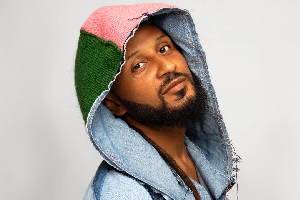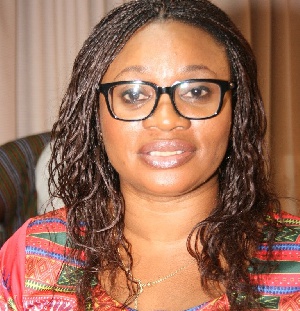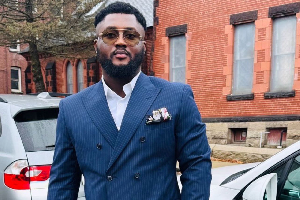By Sintim-Aboagye Gerald
Ghana has experienced six successful elections in the fourth republic and as the country prepares to go to the polls for the seventh time on December 7, 2016, the spotlight is once again on Ghana as it defends its crown of being a beacon of peace in Africa.
However it seems Ghanaians have become accustomed to the word “peace” that it may have lost its value. There’s therefore the need to be conscious of the need for peace in this year’s election.
Theodore Roosevelt once said “a vote is like a rifle: its usefulness depends upon the character of the user.”
This quote by Roosevelt shows that the prevailing environment of peace or conflict lay in the hands of the entire citizenry as each one of us especially the electorate have the responsibility to channel our energies peacefully to ensure a successful election as we have always done in the past.
This is however easier said than done and as such we shouldn’t underestimate the propensity for conflicts to emerge in this year’s election. We must understand that peace or conflict is possible. However our success story will depend on which one we decide to preach and act on as a nation.
Political parties measure the outcome of elections by the number of votes they are able to garner or the election of their candidates. According to Professor Attahiru Jega, former Chair of Nigeria's Electoral Commission (INEC), ensuring peaceful, credible elections are the responsibility of all, and not only of the Electoral Commission. Candidates, political parties and civil society all have a role to play.”
Therefore it’s critical for key stakeholder groups like traditional leaders, community leaders, religious groups, media and social media influencers to focus on preaching the peace agenda. The media and religious groups are usually powerful influencers since they have a captive audience ready to consume information and as such it’s important that they strategically drive the peace message.
The recent forum organised by the Presbyterian Church of Ghana (PCG) chaired by Rt. Rev. Prof. Emmanuel Martey, the outgoing Moderator of the General Assembly, PCG with the Chairperson of the EC as Special Guest with the title; ‘How Credible, Free and Fair would Election 2016 Be’ based on the theme, ‘Be of one Mind, Live in Peace’ (2nd Corinthians 13:11) is a pragmatic step towards making peace the slogan and the mantra of this year’s elections.
These kinds of forums should be organised on consistent basis and given the necessary media coverage in order to educate the citizenry on the need for peace and the importance of peace for national development.
We live in a world where conflict has become a daily part of life. Peace is not an exclusive right of any country any more. I call this war, the ‘psychological war’ of our time. The war starts operating in our subconscious mind and is manifested through uncontrolled crime, tribal wars, arm robbery and terrorism. These vices are all unfortunately on the rise leading to political instability in many regions of the world. These wars in our minds provide a ticking time bomb waiting to be triggered.
According to an article in the Wall Street Journal by Nicholas Bariyo about the recent Zambia elections, titled ‘Zambians Vote in a tight election’, he quoted the head of Zambia’s Electoral Commissioner; Esau Chulu, saying “Peace once lost in a nation is almost impossible to regain,” and further asks a rhetorical question; “What is so difficult about respecting each other’s different political affiliation?” These to me are two powerful statements that establish the importance of peace and emphasize the need to respect each other’s opinions and party affiliation for a peaceful election.
Do Ghanaians respect each other’s political affiliation? How can we make peace the slogan for this year’s election? How can we build a strong foundation for instituting peace during the election?
Ghana is under the illusion that it’s a peaceful country; however, in every election year the country witnesses significant traits of political hostilities which turn violent. If these traits are not addressed but left to operate every election year, then we are potentially staring at a time bomb waiting to explode. The best way to solve any security issue is to curb it at an early stage.
Therefore we need to understand that election is a contest for legitimate power to lead a nation. However, the desire for this power can lead to political parties to forget that any successful democratic dispensation is achieved through non-violent competition. Therefore to have a peaceful and a successful seventh election of the fourth republic on the 7th of December 2016, I will recommend the following;
The Role of the Security Agencies – They are the pillars for enforcing peace and a neutral, well trained and equipped security force is vital. They must not only be reactive they should be proactive and employ sophisticated intelligence systems to prevent any acts of violence
These are a few of the key issues:
• The police and military must have intelligence systems in place to guard against the upcoming elections and the threat of terrorist attacks which is a concern for all.
• Provide security at the polling station to ensure that accreditation, counting and collation of results are done smoothly. They are also to ensure the maintaining of peace in the polling areas and to protect electoral officers at all levels of the voting process.
• Arrest at the instruction of the presiding officer anyone accused of impeding the peaceful conduct of the election or what the presiding officer reports as violating the electoral laws. • There must be the presence of security officials in uniform at each polling station as well as undercover security agents to engage voters in order to gather intelligence before any violence occurs.
• There must be highly visible police presence in cities and towns all over the country to deter people from any violent conduct.
Responsible Social Media Usage –The IGP has come under serious attack for his assertion that, he will ban social media during the elections if need be. The IGP based on security intelligence can ban social media if it threatens the peaceful democratic dispensation of the country.
According to Prof. Ramesh Srinivasan, the author of “Rethinking How Technology Impacts Our World” The first mass protest in Egypt was announced on Facebook by an anonymous group of activists, who in a few days managed to attract tens of thousands of people. Social media thus proved a powerful mobilization tool that helped the activists to outwit the police.
In addition to this, Cosmas Uchenna Nwokeafor in his book titled; Media Role in African Changing Electoral Process: A Political Communication Perspective; reiterated that, in October 2011, Cameroon held it’s presidential elections in the wake of the Arab spring that saw dictators in North Africa swept out of power as a result of the overwhelming force of social media pushing people to the street.
These scenarios further authenticate an article published by the BBC, which established that social media played a very major role in the recent London riots as there was a campaign on Facebook, Blackberry messenger and twitter warning of violence which encouraged others to get involved. It further warned that, up-to-the minute rally took place on a “covert social network Blackberry messenger”.
I have studied social media commentaries especially on political issues over a period of time and I’m convinced some Ghanaians are using social media as a platform for insulting leaders, making offensive comments on issues and using it as a place to promote hostilities.
I believe social media can trigger violence than any other media platforms since we don’t have systems in place to monitor the activities over social media.
The IGP has made a point and it is up to the citizenry to understand that, security measures have never brought comfort to mankind. It always has an element of stressful patterns. However the objective the long term benefit is more important than the stress we need to endure within a short period of time.
For this reason, I will call for a national debate on the role of social media in the electoral process of Ghana, to find out some of the best practices the Ghana Police Service could use to ensure safety and security during and after the elections. That is the definition of democracy.
Politics of Insults and tribal comments – It’s sad when those in authority sit on national televisions, radio and other media platforms and trade insults with confidence and even have the guts to defend their disgusting and outrageous behaviour. As a young democracy this does not help foster the right democratic atmosphere.
There are also many political activists who focus on inciting tribal hatred with the aim of scoring cheap political points. Other distasteful comments include attack on women in authority, personality attacks amongst others. No tribal or offensive comment should be tolerated on any media platform.
The fact is if we continue this way, then we are undermining the value of democracy and creating a potentially explosive environment.
We shouldn’t underestimate that one word can trigger a conflict and one word can commandeer peace.
Peace and conflict can be triggered just by a word so we shouldn’t live under the illusion that Ghana is an island of peace and will remain peaceful irrespective of our utterances, behaviours and attitudes.
Stop Making Politics a Lucrative Business – The obvious fact is that many people who have the opportunity to serve their people are able to amass wealth over a short period of time. This has made politics a very attractive venture especially for the youth. What does that tell you? As leaders, are we setting good examples for the youth to follow?
It’s apparent that, this is the season that political parties invest in the people for votes. So if this is not curbed and the dispensation of ‘freebies’ to the citizenry in exchange for votes is tilted to a particular section of political affiliates it can lead to building tensions in the communities and the nation as a whole.
We need to start to have a paradigm shift and see politics as purely a genuine opportunity for selfless service.
Moreover, we must abhor corruption and severely punish corrupt officials to serve as a deterrent.
Peace is a Responsibility for All – It’s important for political parties to focus on working together irrespective of which political party is in power. The winner takes all approach in politics must end and parties must embrace each other and collaborate because the common mission that should guide parties is the need to better the lives of the Ghanaian people.
I’m glad President Mahama and the opposition leader; Nana Addo Dankwah Akuffo-Addo have affirmed their position of making sure that we have a peaceful, free and fair elections. I believe and hope they honour their promise to the Ghanaian people.
Peace is a collective responsibility and for peace to prevail on the 7th of December 2016, it’s important for the leaders, the security agencies and the citizenry to ensure that any trait of violence is curbed by instituting the POWER OF PEACE to subdue any emergence of any such behaviour.
Finally, as an EX Military Personnel who has experienced wars at first hand, peace is an expensive currency that cannot be taken for granted and hence Ghanaians should not trade the peace they have enjoyed all these years for anything else. We should use peace to build sound minds, create an atmosphere of love and become our own heroes in this coming election. We have done it before as a nation and this election should be no exception.
About the writer
Gerald Sintim-Aboagye is a former British Army Official and the Director of S4L Consult, a policy consulting firm that provides security to individuals, corporate institutions and other security agencies.
He served for over a decade in the British Army and has a wealth of experience in foreign relations, peacekeeping, security, and counter-terrorism measures after serving on duty tours to Afghanistan, Iraq and many other hotspots.
He’s currently an MA Student at Staffordshire University, U.K majoring in Terrorism, Crime and Global Security.
His focus is to provide expert advice in tackling some of the impending threats on the African continent and in mobilizing the grassroots to curb the unrest and the threat of conflicts especially in Sub-Saharan Africa.
Opinions of Tuesday, 20 September 2016
Columnist: Sintim-Aboagye, Gerald
To sink or survive, the mantra of Ghana’s 7th elections
Entertainment














